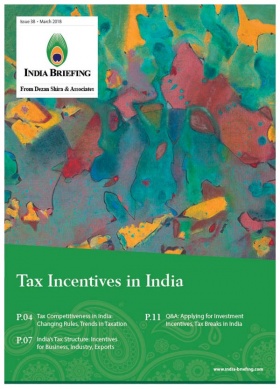HR Policies in India: 10 Best Practices for Employers
When establishing human resource (HR) polices in India, foreign companies need to strike a balance between their own best practices and local norms in the country.
Foreign companies should seek to establish a strong understanding of laws and regulations that inform HR administration as a basis for their HR policies in the country. This is particularly important in country like India, where federal, state, and industry-specific regulations govern labor laws.
However, employers may also use HR policies to gain a competitive advantage. Good HR policies can make employers more attractive to talent in the labor market and lower costly attrition rates. Meanwhile, strong HR and payroll administration can help instill company values locally and improve workforce efficiency.
Foreign companies that have not yet entered India typically review local HR costs and practices before entering the country, while companies that have established often conduct HR health checks or audits to maintain compliance and employ best practices for their industry.
Here, we briefly discuss 10 key areas that foreign employers should pay attention to when handling staff in India. These tips should serve as a good introduction or refresher for any HR professional.
1. Employment Contracts
India does not mandate a written employment contract for local employees. However, it is advisable for companies to use contracts to limit risk and define the terms and conditions of employment.
Indian employment laws are diverse and form a complex framework that employers must navigate carefully when constructing contracts. Apart from labor laws, there are industrial laws, The Companies Act, and the Contract Act, 1872 that govern employment conditions in India.
Both the state and federal governments create and enforce laws pertaining to employment, which can complicate compliance for those that are unfamiliar with the country. HR managers should keep themselves updated and develop employment contracts in accordance with these to prevent future legal complications.
2. Wages
Employers should seek to periodically audit their wage structure to ensure it remains competitive within the local labor market. However, it is perhaps more important to ensure wages are compliant with prevailing laws.
Under the Minimum Wages Act, 1948, all employers in the organized sector must provide ‘the basic cost of living’ to employee categories specified within the act. The Code on Wages Bill, 2019 further enables the federal government to fix minimum statutory wage for millions of workers.
The Equal Remuneration Act, 1976 mandates non-discrimination for payment of wages to men and women, while The Payment of Wages Act, 1936 orders the timely disbursement of wages to employees.
Payment of wages below the minimum wage limits amounts to forced labor. This is prohibited under the Bonded Labor System (Abolition) Act, 1976.
Companies should ensure that employment contracts consider this while defining the terms and conditions for the remuneration for employees.
3. Termination of employment
Employees in India may only be terminated as per the terms and conditions within their employment contract.
However, companies should note that all employers must adhere to the federal and state labor laws when laying off or terminating workers – the conditions drafted in company contracts cannot supersede these legal statues.
Finally, termination without notice is prohibited in India. Termination periods vary by function and length of employment.
4. Maternity and paternity leave
The Maternity Benefits (Amendment) Act, 2017 applies to all shops and any establishments that employ over 10 workers. Under the Act, 26 weeks of paid leave is available for women for the first two children, and 12 weeks subsequently. Companies employing more than 50 people must also provide crèche services.
The Paternity Benefits Bill, 2017 is set to be up for discussion in the next parliamentary session. However, a significant number of organizations, especially foreign companies like Microsoft and IKEA, already include a mutually decided paternity leave clause within their company policy.
This practice has been well received by the Indian workforce and lauded as a good HR move.
5. Prevention of sexual harassment in the workplace
The Indian government has brought the safety of women in the workplace to the forefront of its law making.
An Internal Complaints Committee must be set up by all organizations with more than 10 employees in accordance with the norms laid out in the Sexual Harassment of Women at Workplace (Prevention, Prohibition, and Redressal) Act, 2013. All complaints should be actively pursued, evidenced, and redressed immediately.
To guarantee employee safety, companies must draft appropriate HR policies within the firm, and ensure they are clearly communicated to all personnel.
HR personnel should organize workshops or sensitization programs and encourage communication to promote an organizational culture that provides for a fair and safe working environment for all its employees.
6. Public holidays and work weeks
India observes three national holidays – Republic Day (January 26), Independence Day (August 15), and Gandhi Jayanti (October 2).
On these days, all institutions, whether public or private, must remain closed.
Government approval is necessary for any organization to function on these days. Only certain establishments, such as factories, and industries where the work process is considered to be continuous, including hospitals, and travel agencies, are allowed to operate over 24 hours across 365 days. However, establishments that operate on these days are subject to provide additional wages for staff working on those days.
Additionally, firms must inform the annual list of holidays and weekly offs available to employees each year. The number of leaves and categories of leave must ideally be explained in the employee contract.
Many laws in India, such as the Factories Act, 1948, also provide for the maximum number of work hours and the amount of overtime wages to be paid to labor employed.
7. Restrictive clauses in employment contracts
Employers should note that including restrictive clauses into a contract might not be enforceable through the Indian courts. The Contract Act, 1872, necessitates the fundamental right of all citizens to carry on any profession, trade, or business.
Non-compete, non-disclosure, non-solicitation, and ‘garden leave’ clauses are examples of restrictive clauses that can only be imposed by the courts if plausible grounds – with respect to time-period and nature of activities involved – are provided.
The best way to ensure enforceability is to restrict the scope of the clauses as much as possible within these dimensions. However, this does not guarantee legal protection to employers.
8. Gratuity and Provident Fund
The Payment of Gratuity Act, 1972 provides the guidelines for gratuity owed to an employee.
The number of years of service of the employee is the criteria for deciding the amount of gratuity owed, and this payment by the company is obligatory by law.
The minimum amount (more may be approved) must be given to an employee in case of the following circumstances:
- Retirement;
- Resignation;
- Disablement due to accident or illness; or,
- Death of the employee (gratuity paid to employee’s nominees).
However, if an employee is dismissed for proven criminal or moral reasons, no gratuity is owed to him.
Similarly, the Employees Provident Fund Organization of India (EPFO) oversees and regulates the Employee’s Provident Fund (EPF).
Under this scheme, the employer and employee contribute an equal amount to the fund every month, which is accessible to the employee at certain points in their career.
The EPF scheme is mandatory for a salary below Rs 15,000 (US$220) and voluntary thereafter.
9. Impact of digitalization
Workplaces are becoming increasingly virtual. Firms and employees both require real time employee information to improve critical efficiencies and maintain core compliances within the organization.
The scope of work for HR departments has expanded to include the use of digital technology, through apps and in-house databases, especially in the service and consultancy sectors. This includes the use of online platforms and applications for processes such as recruitment, learning and development, and even day-to-day administration.Business leaders should consider increasingly affordable integrated software solutions that automate aspects of HR administration and payroll. This often allows back offices to focus on providing value added services, allowing front offices to invest more into growth, services, and innovation.
10. Adaptive work culture
Job seekers in India are moving away from traditional work modes – such as a ‘9 to 5’ time pattern – to a more holistic view of career development.
Organizations are also gradually incorporating the idea of work-life balance into their corporate culture.
Responsive and adaptive HR departments are key to cultivating these organizational values, and fostering a balance between employee satisfaction and productivity.
Working conditions in Indian multinational companies are also changing to incorporate flexi-time or work from home options into employment contracts to boost employee retention and loyalty.
This article was originally published on May 31, 2018 and was updated on October 29, 2019.
India Briefing is produced by Dezan Shira & Associates. The firm assists foreign investors throughout Asia from offices across the world, including in Delhi and Mumbai. Readers may write to india@dezshira.com for more support on doing business in India.
- Previous Article India’s Tax Cut – Corporate Rates Slashed to Encourage Investment, Revitalize Economy
- Next Article Why India Has Opted Out of the RCEP














